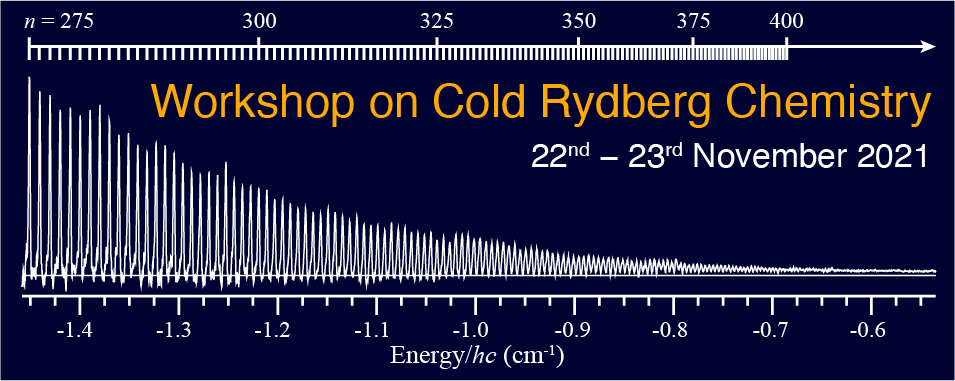-
Jonathan Tennyson (University College London)22/11/2021, 15:05Invited
The R-matrix method is widely used to study a range of electron collision problems. However use scattering a negative energies has been found to be a much more effective method of characterising Rydberg states than traditional quantum chemistry techniques, which struggle reproduce high n states with conventional basis sets. The utility of the scattering method for obtain potential energy...
Go to contribution page -
Frédéric Merkt (ETH Zurich)22/11/2021, 15:35Invited
See PDF
Go to contribution page -
Edward Grant (Department of Chemistry, University of British Columbia)22/11/2021, 16:05Invited
Strong correlation operates in many-body systems out of equilibrium to constrain the mobility of matter and energy. Local potentials oppose ergodic driving forces and trap systems in local minima. Diverse emergent phenomena, including glassiness, topological phases, quantum magnetism, fractional quantum Hall states, and high-temperature superconductivity, all owe defining characteristics to...
Go to contribution page -
Jesus Pérez-Ríos (Department of Physics and Astronomy, Stony Brook University)22/11/2021, 16:35Invited
Rydberg-ion collisions present a strong long-range interaction that, in principle, translates into a significant charge-exchange cross section that scales quadratically with the size of the Rydberg orbit. This talk explores this reaction by identifying the different dynamical regimes regarding collision energy, finding that charge exchange and l-mixing collisions have complex behavior. In...
Go to contribution page
Choose timezone
Your profile timezone:
